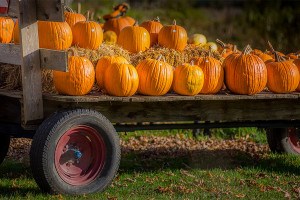Here’s What You Missed at the 2015 Boston Book Festival
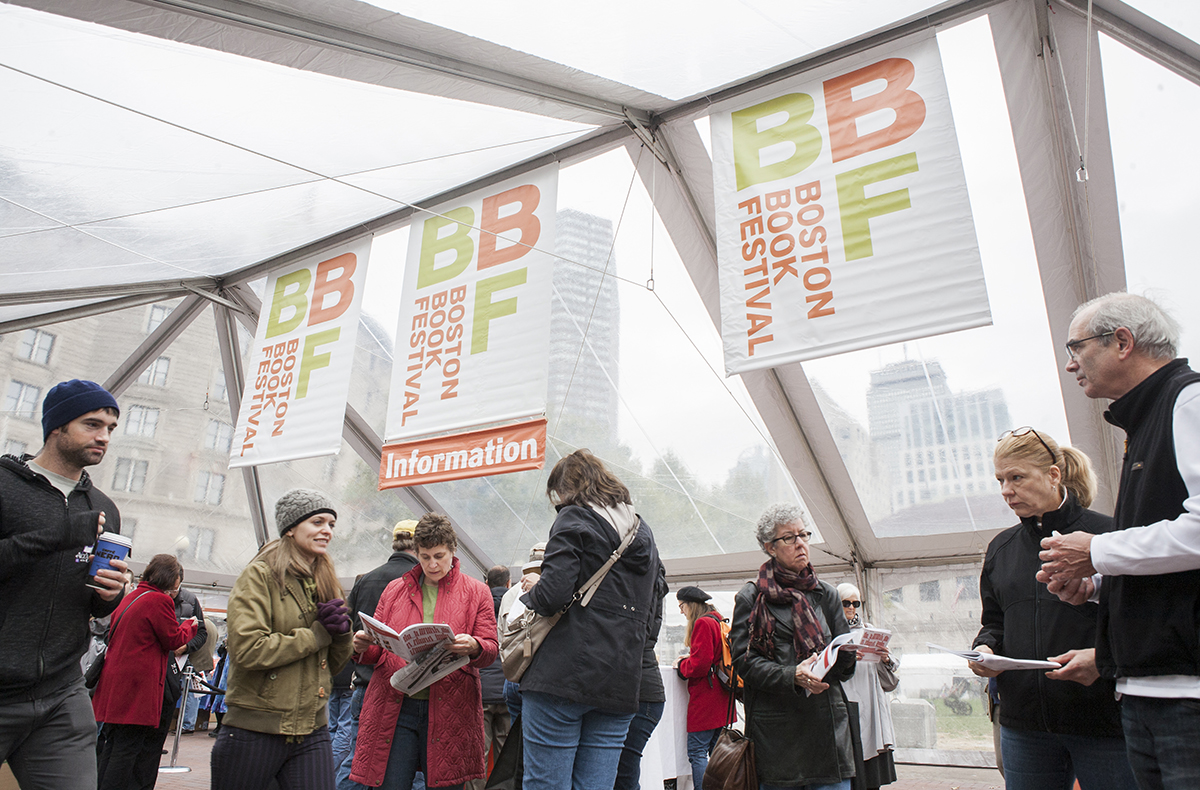
The Boston Book Festival took place at Copley Square / Photo by Olga Khvan
At the 2015 edition of the Boston Book Festival, which unfolded at Copley Square over the weekend, more than 150 authors, both world-renowned and up-and-coming, tackled a wide range of topics—everything from high-density urban planning to the science of food to alternate worlds.
Margaret Atwood kicked off the festival with a single event on Friday evening, while keynotes by Colum McCann, Moshe Safdie, Atul Gawande, James Wood, Louis Sachar, Libba Bray, and Amanda Palmer and Neil Gaiman followed on Saturday, interspersed with other sessions throughout the day.
Here, we recap some of the highlights:
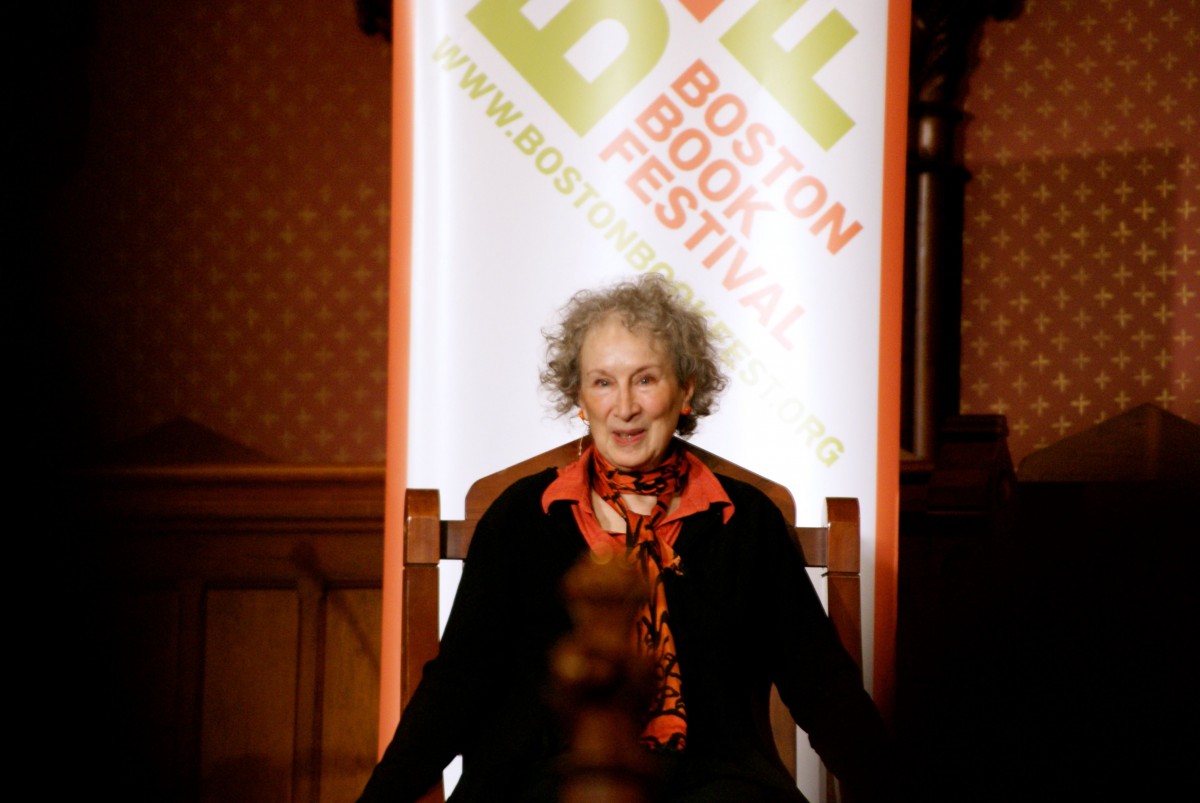
Kickoff Keynote speaker Margaret Atwood / Photo by Kyle Grace Mills
Margaret Atwood knows we’re jealous that Canada just elected a Prime Minister that has tattoos and can dance. She knows that we’re even more jealous because we might get saddled with Donald Trump. But other than that, she was the picture of Canadian grace. She constantly complemented fellow writer and interviewer Kelly Link on her collection of short stories Get In Trouble and generously let the audience in on her demented childhood reading, including Donovan’s Brain.

Photo by Olga Khvan
Festival-goers browsed selections from Brookline Booksmith, one of the local vendors who set up shop up at the 2015 Boston Book Festival.
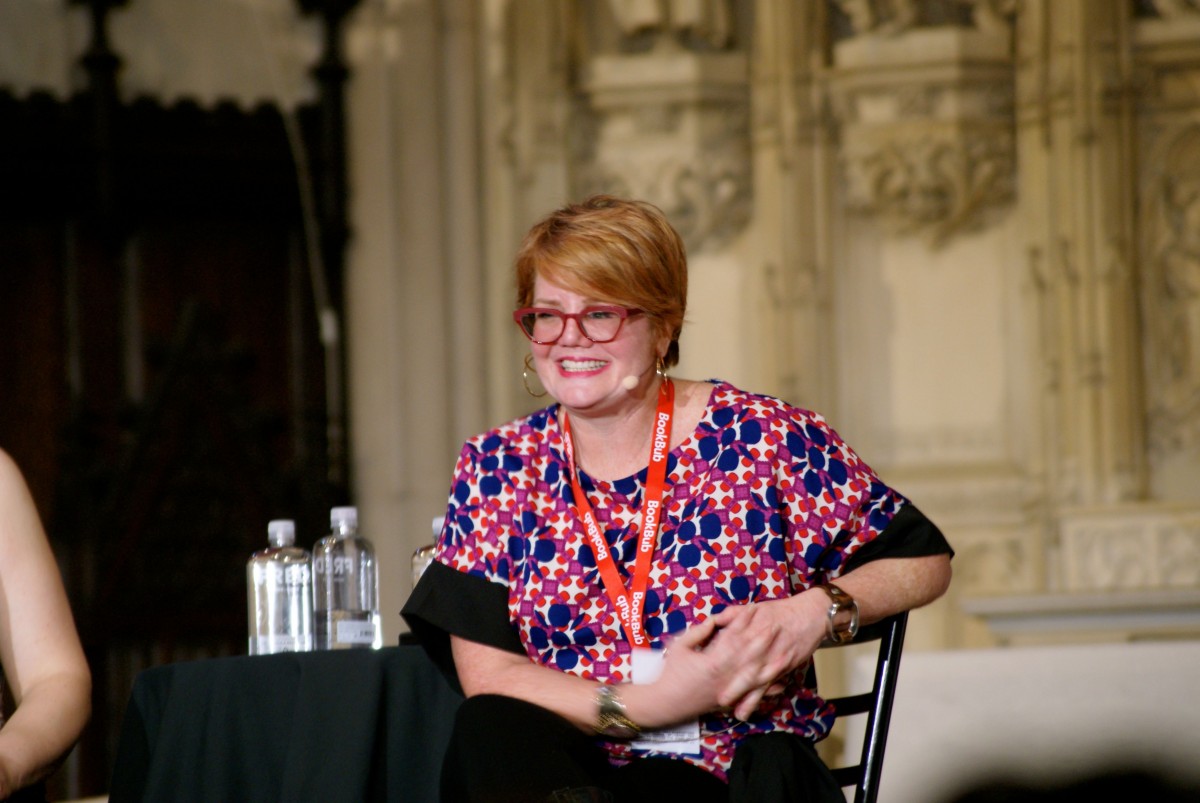
The YA Keynote speaker Libba Bray / Photo by Kyle Grace Mills
Early in the talk, Libba Bray suggested the audience enjoy a drinking game revolved around her constant non-sequiters. Then, remembering that her audience was mostly teenagers, she amended that to the audience that was of legal drinking age. In a discussion that did include a number of fascinating non-sequiters, Bray talked twenties slang, choosing not to spelunk in New York City’s subway tunnels, and radiated water–her favorite research stories. But Bray also touched on a personal side of her life: keeping her father’s homosexuality a secret in their Texas hometown.
“My father was gay and he was also a minister. So that was a secret I had to keep from the age of 14 years old. We weren’t living in New York City, 2015. This was small town Texas many years ago. In a sense, I was living a double life. I would visit my father in Dallas with his partner John, and go to the gay district of Dallas, Oak Lawn. It was this whole wonderland I couldn’t share with my friends or separate family. But my father grew up Southern. And I think that when Act Up says, ‘Silence equals Death,’ it was absolutely right on. My father was an AIDS death. So I try to, in my fiction, give someone like my father a different storyline. It’s my way to remember him.”

Photo by Olga Khvan
Students from Berklee College of Music performed on a stage set up at Copley Square throughout the festival.

Photo by Olga Khvan
Festival goers enjoyed musical performances in between sessions.
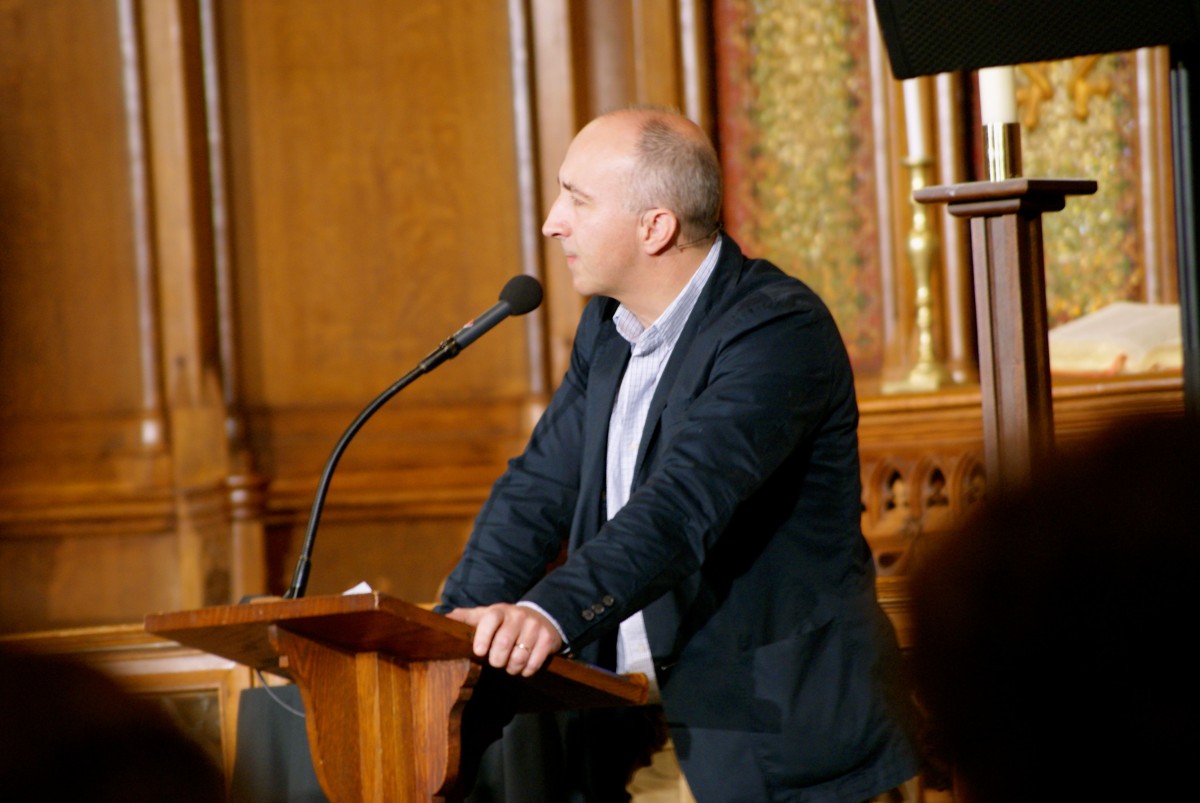
Humanities Keynote James Wood / Photo by Kyle Grace Mills
For once, the masses got a slice of Harvard education without the coughing up enormous amounts of tuition. Harvard professor, New Yorker critic, and literary theorist James Wood offered a snippet of the lecture life by diving into the nuances of Madame Bovary and other works of detail by Tolstoy, Orwell, and Montaigne. Wood argues that the inclusion of details in literature helps insure that the world reexamines what it so easily passes by.
“What do writer’s do when they seriously notice the world? Perhaps they do nothing else than rescuing life from it’s death. Or really, from two deaths, one small and one large. The small death of the fading reality of the sense of detail as we receive them: the memories of our childhood, the almost forgotten pungency of smells and flavors. Then there is the slow death of our receding attention. This death comes from laziness, lack of curiosity, and when we simply stop looking at things.”

Photo by Olga Khvan
The “Character Connection Tent” offered fun meet-and-greet opportunities for the youngest festival attendees.
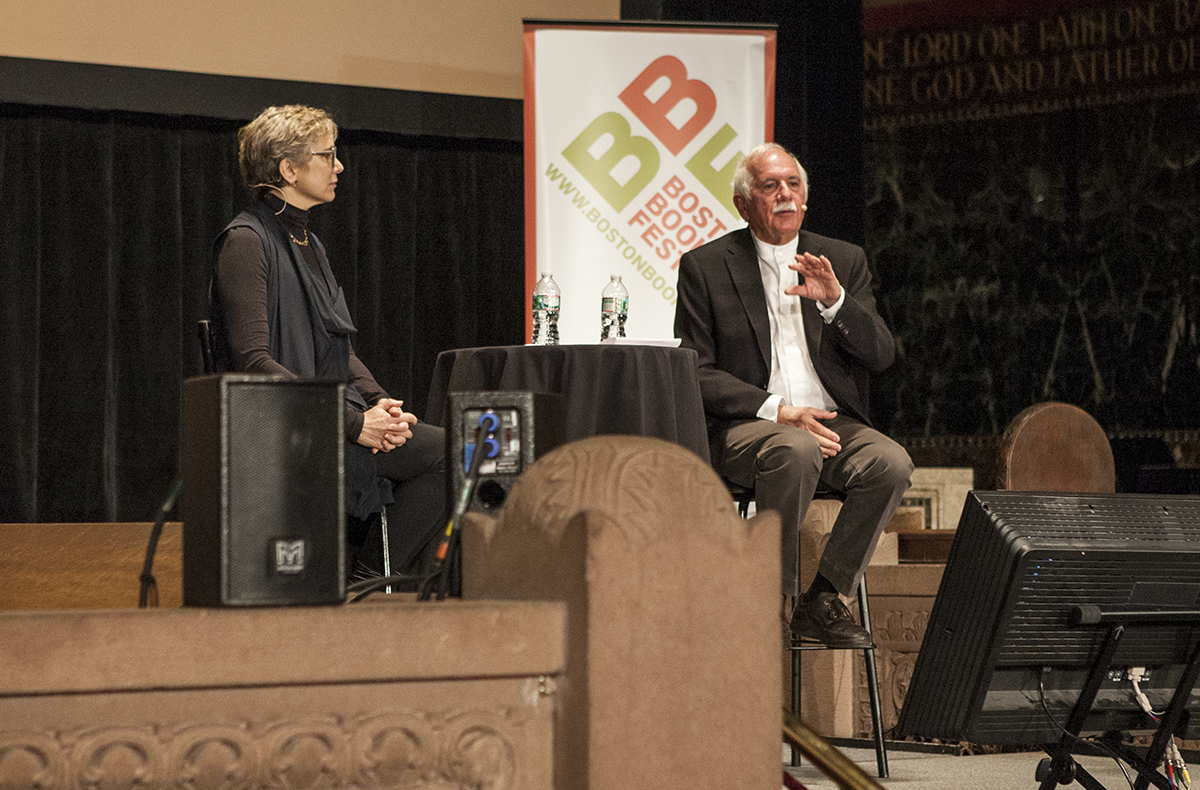
Moshe Safdie appeared in conversation with architecture critic Sarah Goldhagen / Photo by Olga Khvan
Renowned architect Moshe Safdie, whose firm operates out of Boston, Jerusalem, Toronto, Shanghai, and Singapore, discussed the issue of high-density building and the importance of public spaces. Highlighting a few of his own projects in Asia, he noted that the Urban Redevelopment Authority in Singapore is one of the most forward-thinking planning agencies in the world—”sort of what the BRA used to be,” he quipped.
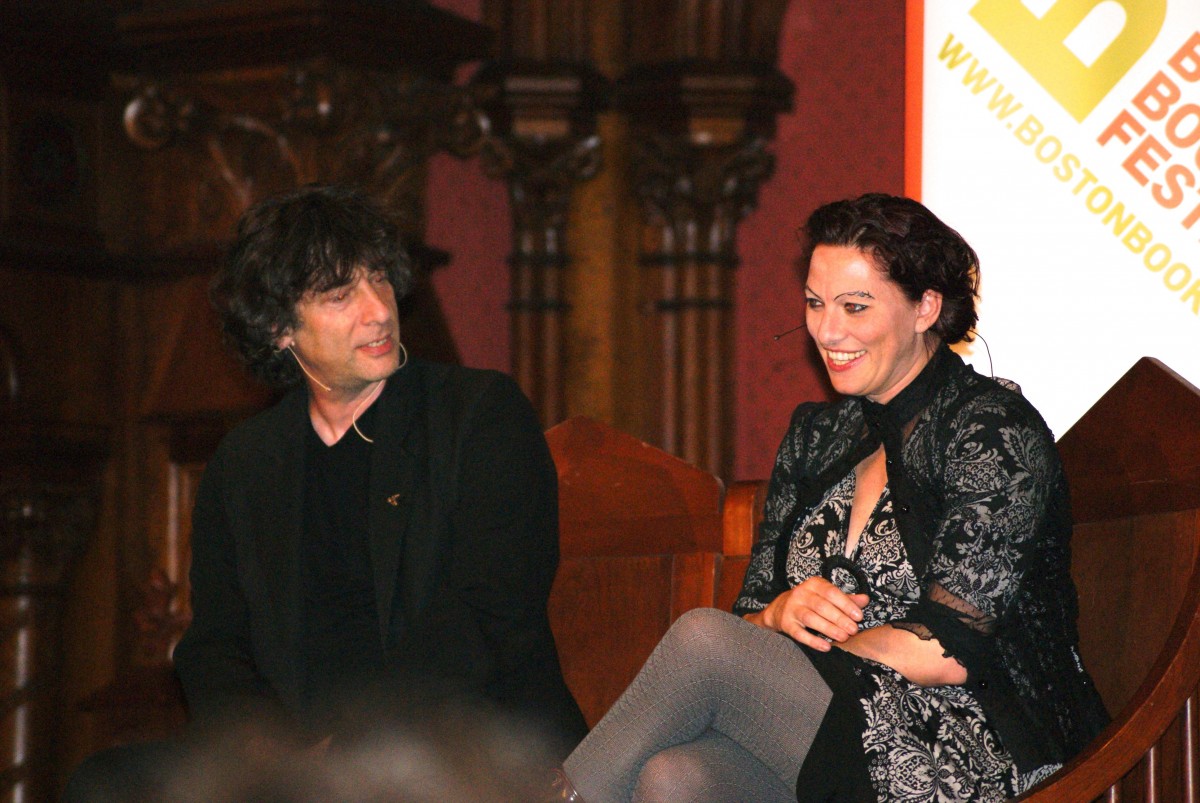
Fantasy writer Neil Gaiman and Memoir Keynote speaker Amanda Palmer / Photo by Kyle Grace Mills
Although Neil Gaiman has more literary credentials than his musician, street-performing wife, Amanda Palmer was the star of the last keynote speech. In an intimate conversation between this fascinating power couple, Gaiman (increasingly referring to himself in the third person) asked what it was like to lay bare the truth of Palmer’s marriage, friendships, and controversial career in her memoir The Art of Asking. Then, Gaiman and Palmer introduced surprise guest speaker Maria Popova, author of the blog BrainPickings.org. Popova asked about the burgeoning love affair between Gaiman and Palmer, and as she read a passage from The Art of Asking, the adorable, weird, and totally unconventional couple began to hold hands. Neil opened up about the struggles at the onset of the relationship.
“I saw our relationship as some kind of strange trans-Atlantic peace treaty in which I would learn to speak American and she would learn to speak English. For instance, when we were in Tennessee recently our friend Whitney came out to stay with us. She had this amazing skill because she had been on tour with me and she’d been on tour with Amanda. She spoke fluent Neil and fluent Amanda. She would actually translate for us. We would be sitting at the dinner table heading off into madness, and Whitney would clarify what we were really saying and we would realize, ‘Oh, we’re not arguing are we?’ So for me, our relationship is about learning to speak Amanda.”
After a beat, Amanda wondered, “I want to know what language the child is going to speak.”
The infinitely dry and British Gaiman responded: “Well, it will be bilingual.”
—Additional reporting by Olga Khvan

